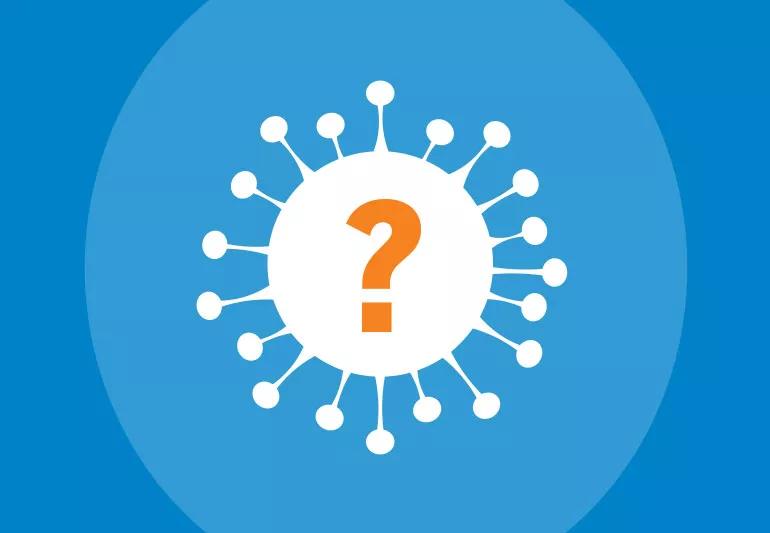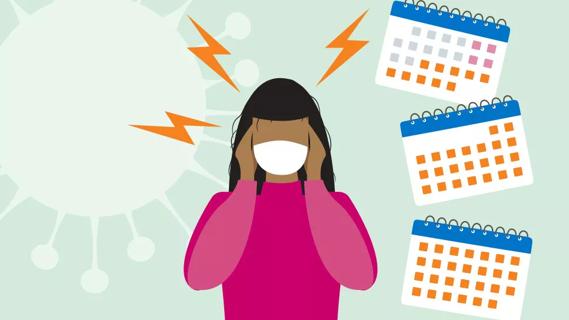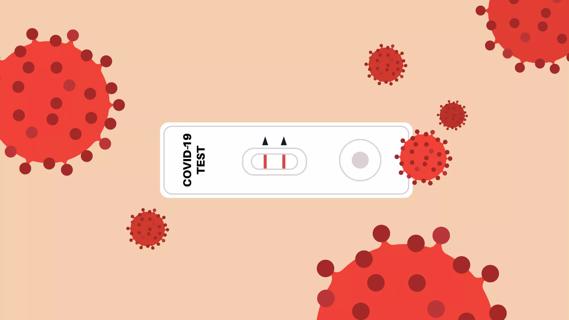How to separate fact from fiction

You may have heard that eating garlic prevents COVID-19 infection? Or that taking a steaming, hot bath will protect you from the novel coronavirus?
Advertisement
Cleveland Clinic is a non-profit academic medical center. Advertising on our site helps support our mission. We do not endorse non-Cleveland Clinic products or services. Policy
Not so fast. Because you also know the old saying, “If something’s too good to be true, it probably is.”
Pediatric infectious disease specialist Frank Esper, MD, says these are just myths — and they’re running rampant. But now, more than ever, he says it’s important to separate fact from fiction.
Here, he debunks five other common myths you may read online:
Video content: This video is available to watch online.
View video online (https://www.youtube.com/embed/nLMcLYW-kkY?feature=oembed)
Coronavirus: Separating Fact from Fiction | Frank Esper, MD
“People are thinking hot air kills this virus and are using blow dryers or somehow increasing the room temperature to help prevent the spread, but that will not happen,” Dr. Esper says. “That type of heat is not necessarily going to cause a change in the infectiousness of this particular virus.”
Think those in tropical or desert areas are in the clear? No. Evidence to date actually shows that COVID-19 can be transmitted in all areas, Dr. Esper says. Climate is not a factor.
Some people believe mosquitoes can spread the virus, but that’s not the case.
“This is a respiratory virus and honestly we’re doing just fine passing it amongst ourselves,” Dr. Esper says. “We don’t need mosquitoes’ help.
“Mosquitoes can transmit disease only by sucking your blood and transferring that blood into someone else,” he notes. So, yes, mosquitoes can transmit diseases like West Nile virus and malaria. But, he says, this virus doesn’t stay in your blood very long so mosquitoes aren’t a threat for transmitting it.
Advertisement
While there was a report from the French Ministry of Health that made headlines recently suggesting ibuprofen (Advil®, Motrin®) can exacerbate a coronavirus infection, Dr. Esper says the evidence doesn’t support that. “We have not seen this in any of our experience here in the United States,” he says.
Guess again, says Dr. Esper. “Younger adults can get infected and can get severe infection — although not nearly as often as in older adults. We are really recognizing that young adults in their 20s, 30s and 40s should still be very vigilant to make sure that they don’t get this virus.”
What’s NOT a myth? Dr. Esper says the best way to prevent COVID-19 infection is by frequently washing your hands, using hand sanitizer and practicing social distancing.
Video content: This video is available to watch online.
View video online (https://www.youtube.com/embed/kbHdISprjxY?feature=oembed)
5 Common COVID-19 Myths, Busted
Advertisement
Learn more about our editorial process.
Advertisement

The short answer: It’s complicated, but the basic care precautions still prevail, like washing your hands and isolating if you’re sick

They can feel like a typical headache or a migraine headache, but the pain can last for weeks to months

Any large social gathering — from a family birthday party to an indoor music concert — has the potential to spread serious infection

It’s important to connect with a healthcare provider, get quality sleep and balance your activities with your energy levels

Just like the flu, COVID-19 will continue to evolve every year

The duration varies, but symptoms can linger for a few days up to a couple weeks or more

Vaccination is best for prevention, but if you get sick with COVID-19, treatments are available

The virus lives best in humans, but it can last on hard surfaces, like doorknobs and railings

Type 2 diabetes isn’t inevitable with these dietary changes

Applying a hot or cold compress can help with pain